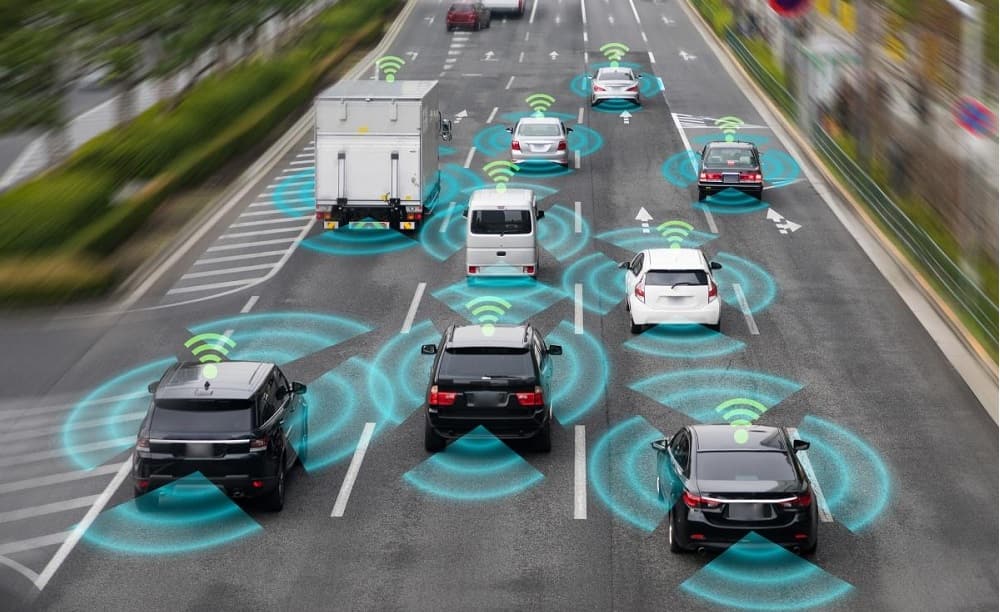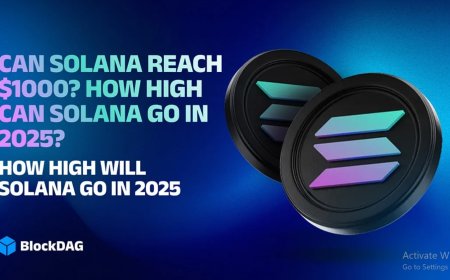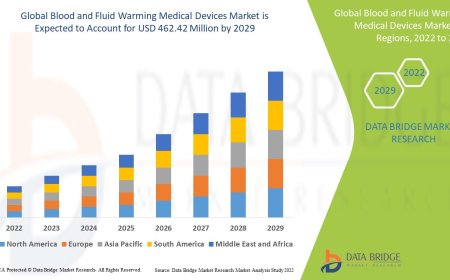Smart Transportation Market Size, Share and Trends Forecast 2025-2033

Market Overview:
The Smart Transportation Market is experiencing rapid growth, driven by Urbanization and Traffic Congestion Solutions, Strong Government Initiatives and Funding Support and Rising Demand for Connected and Autonomous Mobility. According to IMARC Group's latest research publication, "Smart Transportation Market Size, Share, Trends and Forecast by Solution, Services, Transportation Mode, Application, and Region, 2025-2033", Offers a comprehensive analysis of the industry, which comprises insights on the global smart transportation market share. The market size was valued at USD 118.3 Billion in 2024. Looking forward, IMARC Group estimates the market to reach USD 269.5 Billion by 2033, exhibiting a CAGR of 10.84% from 2025-2033.
This detailed analysis primarily encompasses industry size, business trends, market share, key growth factors, and regional forecasts. The report offers a comprehensive overview and integrates research findings, market assessments, and data from different sources. It also includes pivotal market dynamics like drivers and challenges, while also highlighting growth opportunities, financial insights, technological improvements, emerging trends, and innovations. Besides this, the report provides regional market evaluation, along with a competitive landscape analysis.
Download a sample PDF of this report: https://www.imarcgroup.com/smart-transportation-market/requestsample
Our report includes:
- Market Dynamics
- Market Trends And Market Outlook
- Competitive Analysis
- Industry Segmentation
- Strategic Recommendations
Growth Factors in the Smart Transportation Industry:
-
Urbanization and Traffic Congestion Solutions
As more people move into cities, urban traffic congestion has become a massive challenge worldwide. Traditional transportation infrastructure is struggling to keep up, pushing governments and city planners toward smarter, more efficient alternatives. Smart transportation systems like adaptive traffic signals, real-time parking assistance, and AI-powered traffic monitoring tools are helping cities reduce travel time and carbon emissions. For instance, Los Angeles Automated Traffic Surveillance and Control (ATSAC) system has helped improve traffic flow across over 4,500 intersections. Similarly, Singapore uses real-time GPS tracking on public buses to dynamically reroute traffic and ease bottlenecks. This growing need for urban mobility solutions is significantly fueling investment in smart transport technologies, including mobility-as-a-service (MaaS) apps, sensor-enabled infrastructure, and traffic analytics platforms.
-
Strong Government Initiatives and Funding Support
Governments around the world are actively backing smart transportation through national mobility plans, smart city initiatives, and infrastructure funding. The EUs Connecting Europe Facility and the U.S. Department of Transportations SMART Grants Program are just a few examples where billions of dollars are being allocated to make transportation systems smarter, safer, and more sustainable. Many countries now mandate intelligent transportation systems (ITS) in highway and city planning projects. In India, the Smart Cities Mission has encouraged cities to deploy integrated traffic management and smart public transport. These efforts are also aligned with global climate goals, as smart transport solutions are considered key in reducing greenhouse gas emissions. Public-private partnerships are becoming more common, attracting tech firms to co-develop smart traffic, rail, and transit solutions with municipal governments.
-
Rising Demand for Connected and Autonomous Mobility
The growing adoption of connected vehicles and autonomous driving technologies is pushing the smart transportation industry forward. Vehicle-to-everything (V2X) communication, which allows cars to interact with each other and road infrastructure, is becoming a standard feature in new car models. Automakers like Ford, BMW, and Tesla are investing heavily in connected car ecosystems that rely on cloud platforms, 5G, and real-time data analytics. China, Europe, and the U.S. are rolling out smart highway corridors equipped with sensors, cameras, and edge computing to support semi-autonomous and fully autonomous driving. This shift not only improves road safety and fuel efficiency but also drives demand for data-driven transportation systems that can manage and optimize vehicle movement at a citywide scale. As connected mobility becomes mainstream, smart transport systems are essential to support it.
Three Key Trends in the Smart Transportation Market:
-
Integration of AI and Predictive Analytics
Artificial Intelligence (AI) is becoming a central component of smart transportation. Cities are using AI-powered platforms to analyze real-time data from traffic cameras, weather sensors, and GPS devices to predict traffic flow, detect accidents, and optimize public transit schedules. Predictive analytics tools help in demand forecasting, route planning, and even identifying infrastructure maintenance needs before failures occur. For example, Londons Transport for London (TfL) uses AI to adjust traffic light timings in real-time, helping reduce idle times and emissions. Similarly, Waze and Google Maps apply crowd-sourced traffic data and machine learning to offer dynamic rerouting and estimated travel times. This trend is expected to grow as more urban centers digitize transportation systems and seek AI-based solutions to enhance mobility efficiency and reduce congestion.
-
Rise of Mobility-as-a-Service (MaaS)
Mobility-as-a-Service is redefining how people interact with urban transit. Instead of owning vehicles, commuters are increasingly choosing on-demand, shared, or subscription-based travel solutions. MaaS platforms integrate various transport modeslike buses, metro, e-scooters, taxis, and car rentalsinto a single digital interface where users can plan, book, and pay for multimodal trips. Companies like Moovit (acquired by Intel) and Whim in Finland offer real-time multi-modal trip planning across cities. Public transit agencies are also getting on board, integrating ride-hailing and bike-sharing into official apps. The trend reflects changing consumer behavior, especially among Gen Z and Millennials who value convenience, cost-efficiency, and sustainability over vehicle ownership. As cities aim to reduce congestion and emissions, MaaS is emerging as a cornerstone of urban mobility planning.
-
Expansion of 5G and IoT in Transport Infrastructure
The rollout of 5G networks and the proliferation of Internet of Things (IoT) devices are significantly enhancing the capabilities of smart transportation systems. 5Gs ultra-low latency allows real-time communication between vehicles, infrastructure, and cloud systemscrucial for connected and autonomous vehicles. IoT sensors embedded in roads, traffic lights, buses, and stations continuously collect data on speed, occupancy, emissions, and road conditions. For instance, in the Netherlands, smart road projects are using IoT sensors to monitor traffic density and adjust highway lighting to save energy. In South Korea, 5G-enabled smart intersections detect pedestrian movement and adjust signals accordingly. These interconnected systems help governments manage traffic more intelligently, improve safety, and reduce environmental impact. As 5G and IoT become more widespread, they will be the digital backbone supporting next-gen transportation networks.
Leading Companies Operating in the Global Smart Transportation Industry:
- Accenture plc
- Alstom SA
- Bentley Systems Incorporated
- Cisco Systems Inc.
- Cubic Corporation
- General Electric Company
- Indra Sistemas S.A.
- International Business Machines Corporation
- Kapsch Aktiengesellschaft
- Siemens AG
- Thales Group
- Xerox Corporation
Smart Transportation Market Report Segmentation:
By Solution:
- Hybrid Ticketing Management System
- Parking Management and Guidance System
- Integrated Supervision System
- Traffic Management System
- Others
Traffic management system represented the largest segment due to the rising congestion in various cities.
By Services:
- Business Services
- Professional Services
- CloudServices
Cloud services accounted for the largest market share as they offer enhanced scalability and flexibility.
By Transportation Mode:
- Roadways
- Railways
- Airways
- Maritime
Roadways exhibit a clear dominance in the market due to the increasing need to optimize traffic flow and enhance safety.
By Application:
- Mobility as a Service
- Public Transport
- Transit Hubs
- Connected Cars
- Video Management
- Others
On the basis of the application, the market has been divided into mobility as a service, public transport, transit hubs, connected cars, video management, and others.
Regional Insights:
- North America: (United States, Canada)
- Asia Pacific: (China, Japan, India, South Korea, Australia, Indonesia, Others)
- Europe: (Germany, France, United Kingdom, Italy, Spain, Russia, Others)
- Latin America: (Brazil, Mexico, Others)
- Middle East and Africa
Europe enjoys the leading position in the smart transportation market on account of the rising traffic congestion.
Research Methodology:
The report employs acomprehensive research methodology, combiningprimary and secondary data sourcesto validate findings. It includesmarket assessments, surveys, expert opinions, and data triangulation techniquesto ensureaccuracy and reliability.
Note:If you require specific details, data, or insights that are not currently included in the scope of this report, we are happy to accommodate your request. As part of our customization service, we will gather and provide the additional information you need, tailored to your specific requirements. Please let us know your exact needs, and we will ensure the report is updated accordingly to meet your expectations.
About Us:
IMARC Group is a global management consulting firm that helps the worlds most ambitious changemakers to create a lasting impact. The company provide a comprehensive suite of market entry and expansion services. IMARC offerings include thorough market assessment, feasibility studies, company incorporation assistance, factory setup support, regulatory approvals and licensing navigation, branding, marketing and sales strategies, competitive landscape and benchmarking analyses, pricing and cost research, and procurement research.
Contact Us:
IMARC Group
134 N 4th St. Brooklyn, NY 11249, USA
Email:sales@imarcgroup.com
Tel No:(D) +91 120 433 0800
United States: +1-631-791-1145

































